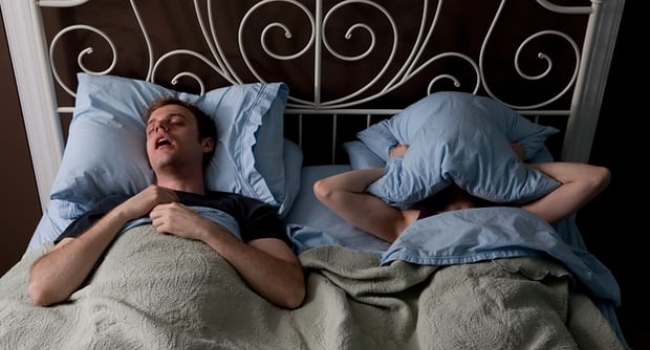- Latest news▼
-
18:00, April 18 Daily Mail: Elderly woman in China gets infected with brain-eating amoeba

-
14:19, April 18 Obesity: exercising before breakfast helps you lose weight faster

-
10:42, April 18 The Conversation: childhood trauma can cause pathological hoarding

-
08:37, April 18 Daily Mail: Satiating food reduces cravings for sweets, nutritionist says

-
18:22, April 17 First Armenian-German Conference entitled “Heart Failure Spring School”

-
08:38, April 17 Why do kids usually recover from COVID-19 more easily than adults?

-
14:37, April 16 Daily Mail: intermittent fasting is not suitable for children and women before their periods

-
16:41, April 15 Cell: in carriers of defective BRCA2 gene, sugar consumption increases cancer risk

-
15:04, April 15 305 cases of measles recorded in Armenia so far in 2024

-
14:38, April 15 Food and Environmental Virology: tea contributes to effective coronavirus control

-
12:41, April 15 Daily Mail: vitamin A, B3 and E supplements can be dangerous

-
10:56, April 15 Diabetes Care: evening physical activity is good for the heart

-
08:27, April 15 Women are more susceptible to blood loss and death during bypass surgery than men, researchers say

-
18:42, April 13 WHO: Nigeria pioneers revolutionary meningitis vaccine

-
16:43, April 13 One-third of women experience menstruation-related migraines, most often during premenopause - study

All materials
What does it mean when we talk in our sleep?

What horrors lurk in our subconscious? According to a new French study – believed to be the largest into the subject – on sleep-talking and what we say when we’re asleep, researchers found the most commonly used word is “no”, and the French swearword “putain” occurred, reports the Times, “800 times more often in sleep than when awake”. Some people were verbally abusive. The study also found that men sleep-talked more than women and used more profanities.
Sleep-talking, or somniloquy, is one of a number of a parasomnias (which include sleepwalking and night terrors). “In my experience, [it] can be linked to the nervous system being overstimulated, which can be related to excessive use of technology before bed or too much caffeine,” says Dr Nerina Ramlakhan, sleep therapist and author of Fast Asleep, Wide Awake. “But these sorts of behaviours can happen with people who are quite hard on themselves, they’re perfectionists, but they often hold back on saying what they really want to say. When they go to bed at night, it spills out into the sleep.”
The idea that you can unearth someone’s deepest secrets while they are asleep is compelling. There are apps that record sleep-talking (Sleep Talk Recorder allows people to upload their often hilarious nocturnal mumblings – one woman says: “Butthole, what was that”; another whispers: “Judi Dench”). But can you confess to a murder in your sleep? Or to having a lover?
Prof Jim Horne, former director of Loughborough University’s sleep research centre and author of Sleeplessness, suggests we shouldn’t read too much into what is said. “Sleep-talking tends to occur in very light sleep,” he says. “You go from a light to a deep sleep, and after about 70-90 minutes, you go into a period of dreaming sleep, which re-occurs about every 90 minutes.” Sleep-talking isn’t related to dreaming but to the lighter sleep where “the mind is meandering and ruminating. It’s really the ramblings of a rather befuddled mind.”
It is much more common in children, and the majority of people grow out of it, although it could have a genetic factor. “Anxiety and stress tends to bring it on,” says Horne. “[Sleep-talkers are] generally reflecting some sort of aspect of a worry. I think it’s best not to place too much concern on sleep-talking and not take the words said by someone seriously.”
However, sleep-talking might tell you one thing. “Someone who persistently does it is probably quite anxious and it might be a good idea to find out what is worrying them.”
Follow NEWS.am Medicine on Facebook and Twitter
- Video
- Event calendar
- Archive
- Most read
month
week
day
- Pediatrics: Hypoglossal nerve stimulation implant helps with sleep apnea 1358
- Health minister: Simulation educational center will be created, assisted reproductive technology capacity will increase in Armenia 1314
- WHO: Nigeria pioneers revolutionary meningitis vaccine 1166
- One-third of women experience menstruation-related migraines, most often during premenopause - study 1134
- Women are more susceptible to blood loss and death during bypass surgery than men, researchers say 928
- Daily Mail: vitamin A, B3 and E supplements can be dangerous 906
- Food and Environmental Virology: tea contributes to effective coronavirus control 906
- Cell: in carriers of defective BRCA2 gene, sugar consumption increases cancer risk 876
- 305 cases of measles recorded in Armenia so far in 2024 870
- Diabetes Care: evening physical activity is good for the heart 860
- Daily Mail: intermittent fasting is not suitable for children and women before their periods 684
- First Armenian-German Conference entitled “Heart Failure Spring School” 476
- Why do kids usually recover from COVID-19 more easily than adults? 338
- Obesity: exercising before breakfast helps you lose weight faster 323
- The Conversation: childhood trauma can cause pathological hoarding 318
- Find us on Facebook
- Poll





